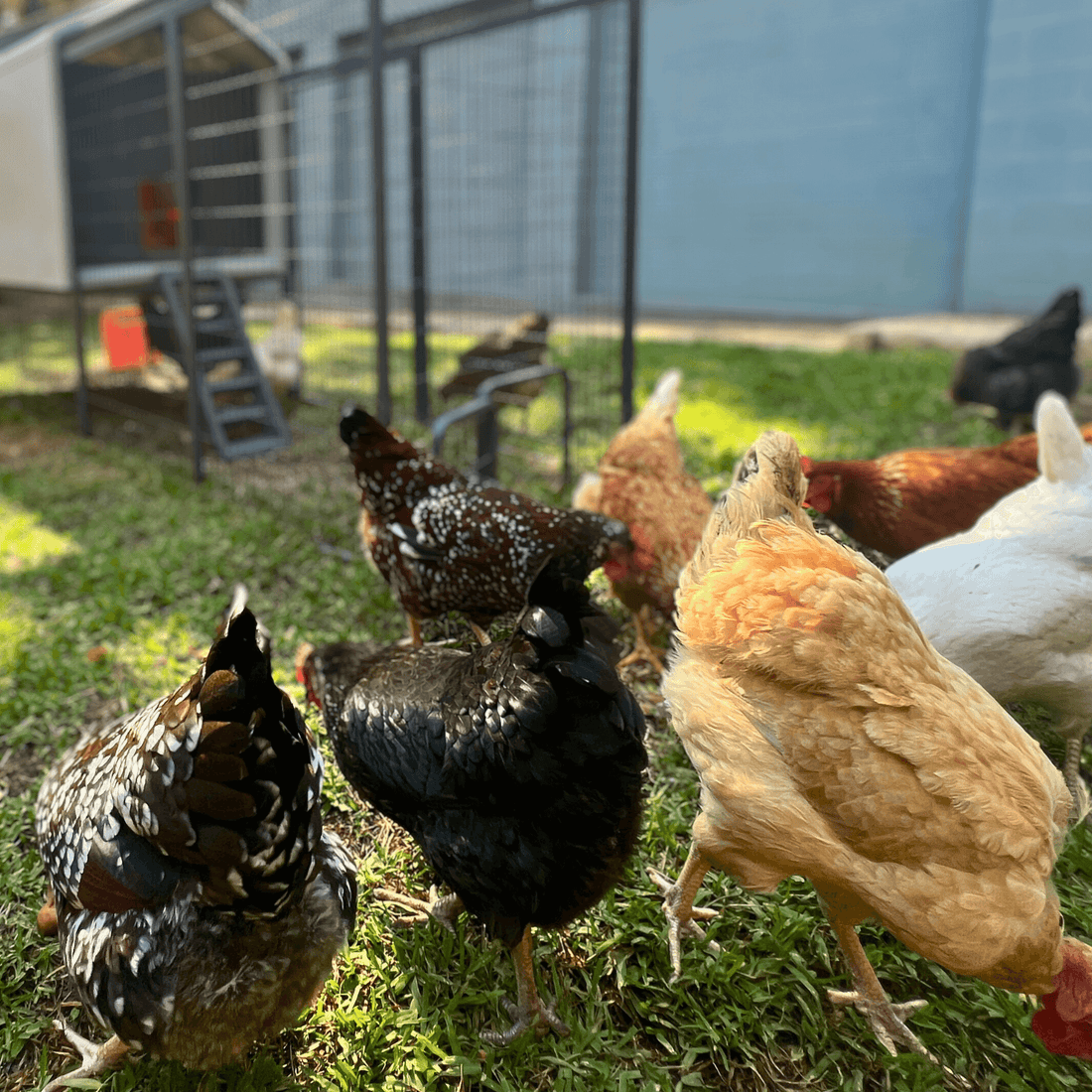
Welcome to the beginner's guide to raising chickens for eggs. Read through this guide to jumpstart your poultry IQ. We'll cover the basics of chicken care, the benefits of raising your own flock and then dive into the specifics.
Chapter 1: The Joy of Raising Chickens
There's something special about gathering your own fresh eggs. Not only do homegrown eggs boast superior taste and nutritional value compared to store-bought options, but they also offer the satisfaction of knowing where your food comes from. By raising your own chickens, you can take control of their diet, ensuring that you and your loved ones enjoy the freshest and healthiest eggs possible.
Therapeutic Benefits and Bonding
Raising chickens provides more than just eggs; it offers a therapeutic and rewarding experience. Many chicken owners find solace and relaxation in tending to their feathered friends. The simple act of spending time outdoors, caring for chickens, and observing their behavior can reduce stress and promote mental well-being. Additionally, chickens can become beloved companions, forming bonds that bring joy and a sense of connection to their caretakers.
Chapter 2: Getting Started
Choosing the Right Chicken Breeds
Selecting the appropriate chicken breeds is a crucial first step in your chicken-raising journey. Consider factors such as climate suitability, available space, and desired egg production. Popular breeds known for their egg-laying capabilities include Rhode Island Reds, Leghorns, and Sussex. Take the time to research and choose breeds that align with your specific needs and environment.
Setting Up Your Smart Coop
In the era of technological advancements, smart coops have revolutionized chicken-raising practices. These coops incorporate automated systems to streamline care and optimize egg production. Features such as climate control, automatic feeding, egg collection, and remote monitoring enhance efficiency, reduce labor, and provide a secure and comfortable environment for your chickens.
Chapter 3: Chicken Care Basics
Providing Proper Housing
Creating suitable housing is vital for the well-being of your chickens. A well-designed coop protects them from predators and adverse weather conditions. Consider factors such as coop size, ventilation, and insulation. Provide ample space for your chickens to move around comfortably, ensuring proper airflow for respiratory health. Insulation helps maintain a stable temperature throughout the year. Lucky for you - you're
Nutrition and Feeding
A balanced diet is essential for healthy chickens and consistent egg production. Commercial chicken feed forms the foundation of their nutrition, supplying necessary vitamins and minerals. Supplement their diet with appropriate kitchen scraps, while avoiding harmful foods like chocolate, onions, and avocados. Foraging opportunities allow chickens to engage in their natural behavior. Lastly, ensure a constant supply of fresh and clean water, as it is crucial for their overall well-being and egg production.
Health and Disease Prevention
Maintaining your flock's health is of utmost importance. Regular health checks and vaccinations help prevent common chicken diseases. Establish a relationship with a local avian veterinarian who can guide you in maintaining optimal health for your chickens. Practicing good hygiene, keeping the coop clean, and implementing proper biosecurity measures will significantly reduce the risk of diseases spreading.
Chapter 4: Eggs, eggs, eggs
Understanding the Egg-Laying Cycle
The egg-laying cycle starts with pullets, young female chickens that mature into laying hens. Typically, pullets begin laying eggs between 18 to 24 weeks of age, depending on the breed. The cycle involves stages of egg development, formation, laying, and rest. Understanding this process allows you to manage expectations and provide appropriate care and nutrition to support consistent egg production.
Raising chickens for eggs is a fulfilling and rewarding endeavor. It offers the joy of gathering fresh, nutritious eggs while providing therapeutic benefits and a sense of connection with nature. By incorporating smart coop technology, you can enhance your chicken-raising experience, optimizing operations and ensuring the well-being of your flock.




